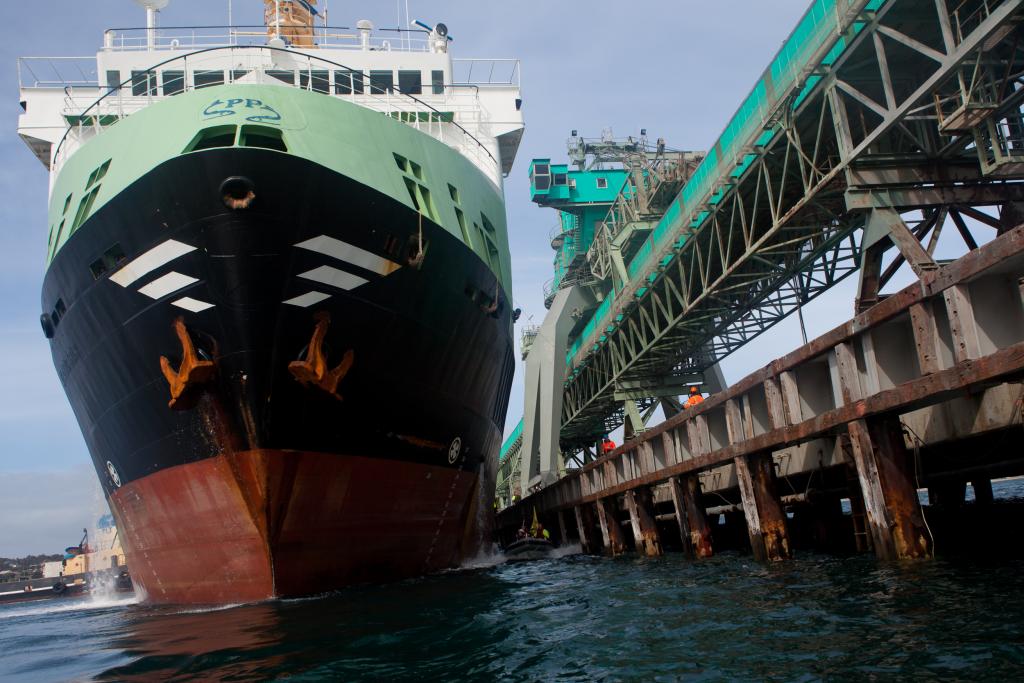Greenpeace CEO David Ritter considers whether environmental activists have talked too much about targets and quotas instead of real people’s lives.
Originally posted on ABC Environment
Earlier this week I swapped Facebook messages with an old mate with whom I used to go fishing, in the days when we were both teenagers at school in the Perth foothills.
Although I’ve not seen him in years, I recall Sean as a great bloke – a big kid, with generosity of spirit and a booming laugh – but we drifted apart as school friends sometimes carelessly do.
Lately though, Sean and I have been in touch again, brought together through the furore over the Margiris – now renamed the Abel Tasman – the 142-metre-long Dutch-owned supertrawler that has recently arrived in Australia.
Like many others, Sean is as mad as hell about the prospect of the Abel Tasman being allowed to fish in Australian waters. Still living in WA, Sean does a bit of volunteering with Recfishwest and he reports that everyone is deeply unhappy about how the issue is being handled.
“It’s just not right mate,” Sean says.
Sean doesn’t necessarily think of himself as a greeny, but he’s always had the fishing bug. Like many other fishers all over Australia, he’s no doubt got his favourite spots; places that are replete with memories of precious moments spent at the water, chasing fish and thinking about life. Sean is deeply angry and worried about what the Abel Tasman could foreseeably do to local fish stocks.
The level of public anger at the Gillard Government’s current failure to ban the vessel and other supertrawlers from fishing in Australian waters also stems from apprehensions about the associated killing of dolphins, seals and other animals. There are also concerns around the propriety of the way in which fishing quota was allocated to the Abel Tasman, severe inadequacies in the scientific data surrounding the allocation, the massive subsidies paid out to the boat’s Dutch parent company by the EU, and the disastrous record of supertrawlers elsewhere in the world.
But underneath the detail of the dispute, another dynamic is playing out, in the gulf between the managerial and technocratic way that the Gillard Government has so far dealt with the Abel Tasman and the popular resonance that the issue is having with the Australian people. It is something from which the environmental movement itself might draw a broader lesson.
My friend and colleague, the English environmentalist Ruth Davis argued in the July edition of the journal Soundings that all too often in the last two decades, environmentalists have ‘seemed remote, disapproving, even high handed’:
[W]e fell prey to abstraction and bureaucratisation in the 1990s and 2000s; parts of the ‘sector’ were trapped in a managerial approach to nature, which in retrospect can be seen to have eroded our ability to defend the common good …
I share that analysis. With the best of intentions, perhaps we’ve talked too much about targets and quotas, when our campaigns should have been anchored in the more tangible, in the places we love and the kind of lives we want to lead. Davis argues that we must ‘find the golden thread of shared values’ that connects the great global environmental problems with individual yearnings for sense of place and richness of work and community which are essential to having a fulfilled life.
In a recent piece in BRW, the Australian social researcher Rebecca Huntley wrote that:
When Australians talk about what makes a home, a neighbourhood, a community worth living in, they are pretty clear about the essential elements. Good childcare centres and schools. Parks and safe outdoor areas for children and for exercise…
Her findings are essential to the future of the environmental movement in Australia. As Ruth Davis contends:
Environmentalists need to imagine themselves into the mind of a young mother with a three-year-old, unable to leave her house to let her child play on a swing, or sit in the grass, in order to see how strong is the sense of common purpose that binds our work in the Arctic or the Amazon to our work in our own streets.
In our national context the road to saving the climate, the oceans and the forests ultimately lies not through the calculations of elites, but the stories and experiences of the Australian community.
Unlike the rootless and feckless Margiris, Australian anglers, local lower impact commercial fishers, and environmentalists are likely to share common bonds to places and communities which we all cherish. We may disagree from time to time about how to best protect and share our home, but we are truly a community of fate, bound together beside our local seasides.
Governments, of course, must deal at a level of generality and abstraction. But policy and administrative decisions are always made within a context of social understanding. And in relation to the Margiris – through the inadequate conditions set by Environment Minister Tony Bourke and the current inaction of Fisheries Minister Joe Ludwig – the Gillard Government is getting the whole thing fantastically wrong.
My common cause with my old mate Sean is anchored in the local and the concrete. We both want to defend the ocean that we love, against the impersonal and destructive force of the Margiris, a monster that plunders the seas for profits, regardless of the consequences. And my sense is that a lot of other Australians are with us.
When I’m next in WA, I hope there’s time to give Sean a yell. I wouldn’t mind seeing if he is up for catching up on the lost years over a bit of fishing. It would be good to sit down and remember a few shared stories.
David Ritter is the Chief Executive Officer of Greenpeace Australia Pacific. Follow him on Twitter : View his full profile here.


